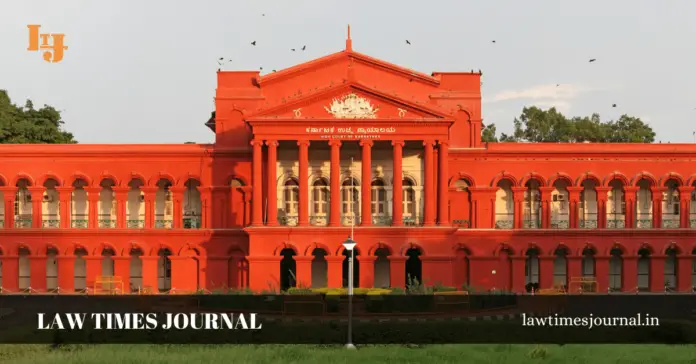
A Division Bench of Justice G Narendra and Justice M I Arun upheld the appeal and quashed the acquittal of a person accused of raping a minor. The Karnataka High Court recently set aside the order passed by the trial court acquitting the accused in a minor rape case.
The facts of the case are such that the complainant reported that his daughter/victim and the defendant Santhosh, who both worked on a coffee plantation, fell in love. The suspect made his daughter believe that he would marry her and when no one was in the house, he came and forced sex with his daughter and left for his hometown in the past 20 days without telling anyone. At present, his daughter Preethi is seven months pregnant and has therefore requested criminal proceedings against the accused Santhosh. This criminal appeal has been brought under Section 378 (1) and (3) of the Code of Criminal Procedure, i.e. Cr. PC seeking permission to appeal the verdict and acquittal of 01-02-2020 passed by the Additional Sessions and Special Judge Chikkamagaluru acquitting the accused defendant of the offense under Section 376(2)(n) of the Indian Penal Code, 1860, i.e. IPC and Section 5(j)(ii) and the Prevention of Sexual Offenses Against Children Act 2012, i.e. – say the POCSO Act.
The investigation has been completed and the victim statement has been included. The court acquitted the accused because it ruled that all key witnesses had become hostile and therefore did not allow further questioning of the witnesses.
The main question to be assessed in this case is whether the first instance court erred in conducting the DNA test of the child and not ordering the accused if it erred by publicly not allowing the ministry to question other witnesses.
Counsel for the accused argued that the accused and the victim are currently married and lead a happily married life. The victim’s attorney argued that by being acquitted, the defendant had abandoned her and the child and could not be found.
The Court, after reviewing all the documents in the file and providing the witnesses, found that the defendant’s charge could only be established after considering all the witnesses to which the prosecution desired. It is a particular case for the prosecution that they have the necessary evidence to prove the guilt of the accused and that they want to make the necessary claim to carry out the DNA test and that the physical witnesses only become hostile to false promises. of the accused.
Consequently, the Court ruled that “the trial court erred in not allowing the prosecution to present the necessary evidence to prove the defendant’s guilt”.








